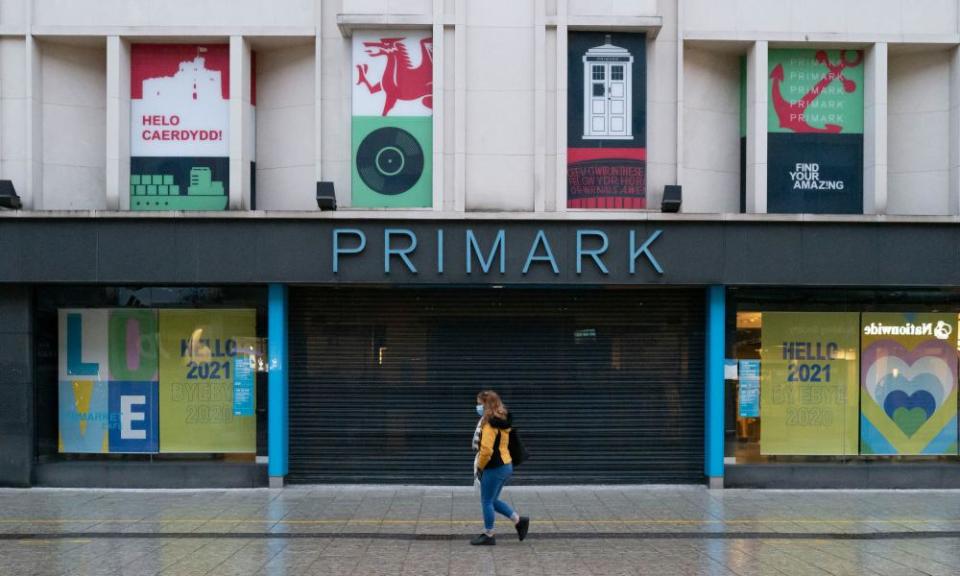'We're going to be back,' says Primark after it predicts £1bn sales loss

Primark has said lockdown store closures would mean missing out on more than £1bn in sales, but added it was confident of a resurgence after the crisis ended, promising: “We are going to be back.”
The fast fashion retailer does not sell online, and three-quarters of its store space is closed, including all of its 190 UK shops, plus a further 115 across European markets such as Germany, Ireland and Spain.
John Bason, the finance director at Primark’s owner, Associated British Foods (ABF), said: “We are an emblem of the non-essential retail on the high street that is closed. I hate losing the sales we are going to lose but … we are going to be back. People will want to go on holiday, meet one another and shop at Primark again.”
Shop closures and other restrictions in its main UK and European markets resulted in a 30% fall in sales, to £2bn during the the 16 weeks to 2 January 2021. Sales for the Christmas period in 2019 hit £2.9bn.
The retailer lost sales worth £540m during November and December, prompting it to increase its forecast of £650m loss, made a fortnight ago, to more than £1bn in the six months to the end of February.
Primark has been hit particularly hard by the pandemic because its strategy focuses on bricks-and-mortar stores. Before the pandemic, the strategy helped it become one of the UK’s largest clothing retailers, focusing on low prices rather than expensive investments in online shopping.
“Our price point is the reason that we can’t, and other people cannot make money online,” said Bason. “That makes us different. When we reopened back in June I met people who said ‘thank God you’re open again I’ve been waiting for you’. Why are they waiting? Because they can’t get what we offer elsewhere. We’re giving people want they want.
The pandemic meant sales during the traditionally lucrative Christmas period have dropped for two years in a row. A year ago, before the extent of the coronavirus outbreak became clear, the retailer said it switched its focus to growing overseas rather than in the highly competitive UK market.
ABF said a 14% like-for-like decline in Primark sales while stores remained open was “strong”, given a “significant decline” in commuting and tourism footfall in city centre shops. Sales at out-of-town retail park locations were higher than the year before, but shopping centres and regional high streets suffered.
Primark will put unsold clothes for autumn and winter worth £200m in warehouses to try to sell later this year, but still expects to roughly break even because of cost cuts. However, ABF said it will honour all orders with suppliers, after fast fashion retailers were criticised for order cancellations that would effectively make workers in poorer countries bear much of the cost of reduced sales.
Primark’s difficulties were balanced by a stronger performance in ABF’s food and agricultural divisions, all of which grew faster than expected. Group revenue fell 13% compared with the same period last year to £4.8bn. ABF’s agriculture division, which makes animal feed, enjoyed the fastest growth, with sales up by 10% year-on-year.

 Yahoo Finance
Yahoo Finance 